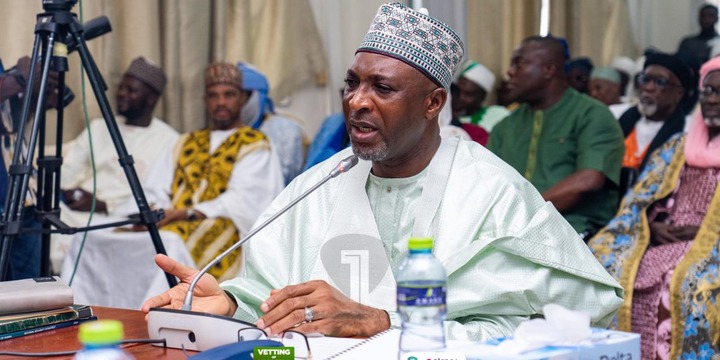Mohammed Muntaka Mubarak, the Minister-Designate for the Interior, has raised serious concerns about the deplorable state of Ghana’s prisons, particularly regarding the inadequate budget allocated for feeding inmates.
Speaking during his vetting before the Parliamentary Appointments Committee on Friday, January 24, Muntaka pledged to prioritise prison reform if his nomination is approved.
The Asawase Member of Parliament lamented the GH¢1.80 daily feeding budget per prisoner, describing it as grossly insufficient and inhumane.
He expressed disbelief over how such a meager amount could provide adequate nutrition for inmates, likening it unfavourably to the care extended to household pets.
The Minister-Designate expressed deep concern over the health implications of such poor nutrition, particularly in an environment where inmates are already vulnerable to contagious diseases due to overcrowding and unsanitary conditions.
He assured the Committee that improving the feeding budget would be a top priority under his leadership.
“I was shocked when I heard that the rationing for feeding a prisoner in Ghana is GH¢1.80 for the whole day and I doubt with the greatest of respect that even the cats and dogs in our houses, how much food do we give them that we will put our own compatriots because of one mistake or the other, in trying to corect them, we feed them with GH¢1.80 and expect them to be healthy.?”
“It is a very serious thing and I assure my colleagues that I will pay attention to it and address it.”
Muntaka also highlighted the broader challenges facing Ghana’s prison system, including severe overcrowding.
Many of the country’s prisons operate far beyond their intended capacity, creating an environment ripe for the spread of diseases such as tuberculosis, scabies, and other communicable illnesses.
The Ghana Prisons Service has repeatedly called for government intervention to address these issues, but progress has been slow.
